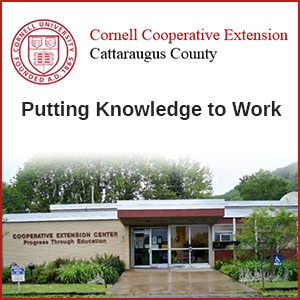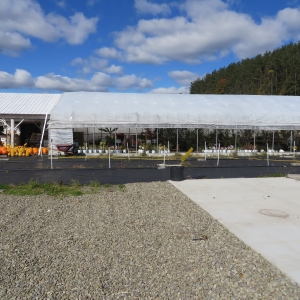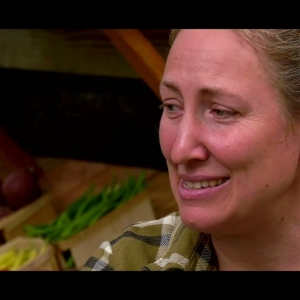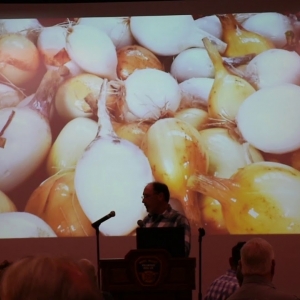Other Ag News:
On Friday, February 13, House Agriculture Committee Chairman Glenn “GT” Thompson (R-PA-15) released the Farm, Food, and National Security Act of 2026 (FFNSA).
The introduction of the bill comes amidst an historic moment in federal food and agriculture policy. More than seven years removed from the enactment of the 2018 Farm Bill, farmers and ranchers are in a moment of crisis, with countless farms on the brink of foreclosure. The past year has also brought unprecedented instability in federal partnerships: farmers have experienced unexpected contract cuts and unpredictable, abrupt trade policy shifts, and the impact of a severely reduced federal workforce. In January 2025, the US Department of Agriculture (USDA) began freezing and even terminating the lawfully held contracts of farmers and farmer-serving organizations, disrupting planning for the 2025 planting season. The past year also included a budget reconciliation bill that slashed hundreds of billions of dollars from nutrition assistance for seniors, children, and veterans and directly reinvested $50 billion of that to further increase farm subsidies, abandoning the decades-long bipartisan farm bill coalition in the process. FFNSA should not and cannot be viewed outside of this context – to do so would be a rejection of reality.
The National Sustainable Agriculture Coalition (NSAC) appreciates the inclusion of improvements to local and regional food systems and the removal of a particularly harmful provision that would have fundamentally altered the Conservation Reserve Program for the worse. Yet in the context of propelling American agriculture forward – and when considering everything farmers and ranchers have endured for the past year – FFNSA falls woefully short.
FFNSA does nothing to stabilize USDA. It does not prevent the USDA reorganization from undermining services for farmers; it does not reverse USDA’s shameful ongoing attack on programs that seek to increase opportunity across the food system; and it does not appear to meaningfully support staffing levels so that farmers can access federal programs. Furthermore, in the shadow of a budget reconciliation bill that managed to provide guaranteed funding for tens of billions in new farm subsidies, FFNSA refuses to cobble together guaranteed funding for vital programs or to increase funding for programs that have been at the same level since 2018. Any program in FFNSA that receives flat funding is effectively cut by roughly 20% due to seven years of inflation.
The following are select provisions based on NSAC’s initial analysis of the full text of the Farm, Food, and National Security Act of 2026.
Title 1 – CommoditiesWhile many of the Title I programs – including the Price Loss Coverage and Agriculture Risk Coverage programs – were addressed in the One Big Beautiful Bill Act (OBBB, P.L. 119-21), FFNSA includes a few notable changes for specialty crop support and disaster relief programs. First, the bill establishes a permanent framework for future emergency assistance that is specifically designed to support specialty crop producers based on adverse events, including economic crises or market disruptions. The program – which shares some similarities with the Marketing Assistance for Speciality Crops programs, but is not identical – would calculate payments based on sales from the previous market year, and establish a consistent mechanism and methodology framework to distribute emergency aid for specialty crop producers (Section 1003).
While it is vital to ensure specialty crop producers receive necessary aid during an emergency, this provision, as written, does not ensure specialty crop producers of all sizes receive adequate support. The bill includes high payment limits of no less than $900,000 for those deriving at least 75% of their income from farming activities, potentially concentrating any limited funds made available to a smaller number of large producers. The proposed program also fails to provide support to new producers who were impacted by an adverse event but had no recorded sales in the year prior.
FFNSA also gives USDA the authority to administer future disaster programs through state block grants (Section 1004). State administered programs have the potential to offer more tailored support for a state’s unique experience with a disaster. However, in practice, these programs often face significant delays in getting funds into farmers’ hands, establish inconsistent standards across states, and reduce USDA’s ability to ensure compliance across programs and reduce duplicative payments. As written, FFNSA provides few protections to ensure these issues do not hinder relief efforts when administered through state block grants.
Disaster relief programs are often necessary to effectively respond to an unusually damaging event. However, creating additional permanent disaster programs to distribute future ad hoc spending is not a sustainable solution to an insufficient farm safety net. Without proper investments to expand access to and improve risk management tools for the majority of producers, which are absent from FFNSA, farmers and ranchers will continue to struggle with an inadequate farm safety net.
Title 2 – ConservationFFNSA’s conservation title presents a decidedly mixed bag, with several modest positive policy changes alongside some provisions that act as barriers for farmers trying to access popular federal conservation programs.
The bill codifies a minimum Conservation Stewardship Program (CSP) payment of $4,000, guaranteeing that producers of all sizes receive a solid baseline level of support when enrolling in CSP (Section 2301). This is an improvement over the $2,500 minimum payment proposed in the last House Farm Bill and in line with NSAC priorities for CSP.
However, FFNSA also siphons off CSP’s limited – and consistently oversubscribed – funding for a new grant program supporting states and Tribes administering soil health programs (Section 2302). While NSAC has championed providing federal support for state and tribal soil health programs, pulling funds from a popular, effective conservation program and thereby limiting farmer access is a non-starter. Currently, only 30% of farmers applying to CSP can secure contracts. It makes little sense to stretch limited resources within such a popular program across new purposes and subprograms. Doing so would only ensure that farmers interested in CSP continue to get left behind. Placing a state and tribal soil health assistance program in CSP makes even less sense, given that other conservation programs, such as the Regional Conservation Partnership Program (RCPP), are already designed to provide federal support for conservation work led by non-federal partners. NSAC opposes using CSP as the home for this new grant program and encourages Congress to see the wisdom of funding state and tribal soil health programs through RCPP instead.
Across both the Environmental Quality Incentives Program (EQIP) and CSP, the FFNSA significantly increases support for precision agriculture technologies. NSAC recognizes that precision agriculture has demonstrable benefits for some operations; however, it remains a relatively high-cost conservation solution that does not serve all farmers. Conservation program funding is limited, and providing overly robust support for practices unsuitable for all operations leads to a small set of farms consuming an outsized portion of program resources. This is an irresponsible use of limited public funding, especially when there are size- and scale-neutral management alternatives that serve far more farmers and deliver greater environmental benefits per dollar spent. We were pleased to see Congress recognize the high conservation potential of perennial production systems by including them in the Conservation Innovation Grants program, and these systems, which provide holistic conservation outcomes and are more accessible to a wider range of producers, deserve just as much attention and investment (Section 2204). NSAC calls on Congress to consider a fairer and more balanced approach to supporting precision agriculture in this farm bill.
As a positive change to the cost share offered at the Natural Resources Conservation Service (NRCS), the FFNSA adds greenhouse gas reduction as a purpose to EQIP’s top ten priority practices authority. This authority allows states to select 10 priority practices that receive 90% cost share, as opposed to the standard 75%, focusing more resources on those practices that both work in that state and address the most pressing environmental challenges producers are facing. Adding greenhouse gas reduction as a purpose that these practices can address makes it clear that states can choose to focus EQIP resources on addressing climate change and provide increased support to the producers eager to do that work within their operation.
The FFNSA appears to cut $1.055 billion dollars from EQIPs first five fiscal years of the 10 year budget window. Although the total baseline for the program should remain the same long term, this means that EQIP – and the farmers who depend on it – will lose money in the near term, hampering access to funds that support viability, resilience, and the ability to reduce input costs. Some of these EQIP funds are clearly redistributed to smaller conservation programs, including the Conservation Reserve Programs Transition Incentives Program; however, it is not clear at the time of publishing where all of the funds removed from EQIP have gone, or if they remain part of Title II’s budget authority.
The bill meets the standard, bare minimum of reauthorizing five year payment limits in both EQIP and CSP, at $450,000 and $200,000, respectively. This is a necessary update that has been ignored in recent Farm Bill extensions. NSAC is relieved to see its inclusion here, as payment limits are one of the key tools that help ensure finite program resources are spread around to a larger number of farms, especially smaller and mid-sized operations. However, FFNSA fails to eliminate the separate and lower payment limit in EQIP for producers accessing the Organic Initiative. While it raises the limit from $140,000 to $200,000, continuing to maintain a significantly lower limit for organic perpetuates an unnecessary institutional bias against organic producers. NSAC opposes this separate and lower limit, as organic production has inherent conservation value, and EQIP should not penalize the efforts of producers seeking certification.
FFNSA provides a long overdue, full reauthorization of the Conservation Reserve Program (CRP), including new funding for the Transition Incentives Program (TIP). The flagship conservation program of the Farm Service Agency (FSA), CRP, has not received the same attention as other conservation programs in major legislation in recent years, leading to uncertainty and programmatic delays. NSAC strongly supports fully reauthorizing CRP and providing funding for TIP, ensuring these tools are available to producers each year. Further, the FFNSA strips problematic reforms to CRP’s eligibility requirements proposed in the previous version of the bill.
Growing bipartisan support for the Local Farmers Feeding our Communities Act embodies the historical collaboration of agricultural committees responding to the needs of both the farm and food coalition. FFNSA draws from this bipartisan proposal to authorize a new food assistance program that builds upon the success of the previous Local Food Purchase Assistance (LFPA) program. Its primary focus remains on building reliable markets for small, mid-sized, beginning, and veteran farmers and strengthening local and regional food systems. It accomplishes this by investing directly into states, Tribes, and territories, and it makes improvements to LFPA by directing explicit technical support to producers to obtain food safety training and certification.
Codification of this program could catalyze long term growth in local and regional markets; however, the success of the program is severely at risk with an authorization of appropriations set only at $200 million. Recent history has demonstrated a limited capacity to sufficiently fund programs such as these through the annual appropriations process, making this provision more mirage than reality. The success of LFPA in providing economic opportunity for small and mid-sized farmers cannot be understated, and has demonstrated sufficient proof of concept to warrant mandatory funding as laid out in the Local Farmers Feeding our Communities Act.
Title 5 – CreditFFNSA includes limited improvements to the farm loan programs and access to credit, but leaves out many important changes to protect borrowers and includes detrimental regulatory changes that would inhibit transparency in agricultural lending.
FFNSA would problematically provide sole authority to the Farm Credit Administration to regulate the Farm Credit System (FCS). This provision would remove any regulatory authority from other entities, including the Consumer Financial Protection Bureau (CFPB), and further erode the CFPB’s demographic reporting requirements in Rule 1071 for loans administered through FCS.
However, FFNSA also includes several provisions that would help producers access capital, including: authorization for USDA to restructure guaranteed loan debt; a reduced experience requirement; a pre-approval pilot for farm ownership loans; an expedited approval process for loans under $1 million; and shifting the burden of proof from farmers onto USDA when appealing a loan denial. It also increases the limits for direct operating, farm ownership, and microloans. It does not, however, raise the total funding authorization that would create room for USDA to make and guarantee these bigger loans, nor does it place guardrails on lending to protect farmers and ranchers from over-collateralization or prevent concentration of funds among fewer large operations.
Title 6 – Rural DevelopmentFFNSA authorizes a new grant program, the New, Mobile, and Expanded Meat Processing and Rendering Grant Program, which is, in broad purposes, similar to the Processing Resilience Grant Program within the bipartisan Strengthening Local Processing Act. However, FFNSA’s version of the program provides very limited funding – only $3 million in appropriations authorization – for those grants, smaller than many state budget allocations for a similar purpose (Section 6304). The already limited funding is made even less accessible by including state departments of agriculture and public land grant universities as eligible entities, despite these entities often already having these facilities or the budgetary capacity to pursue them.
FFNSA authorizes the Food Supply Chain Guaranteed Loan Program, a valuable resource for needed investments in aggregation, processing, storage, and distribution (Section 6303). Yet, without defined priorities or target recipients, the program may inevitably lend itself to financing large-scale operations rather than serve as a new capital product for small, scaling, or new local operations.
Finally, FFNSA includes a standard, bare minimum reauthorization of longstanding rural business development programs, such as the Rural Microentrepreneur Assistance Program (RMAP), Appropriate Technology Transfer for Rural Areas (ATTRA), Rural Business Development Grants, and Rural Cooperative Development Grants. The bill also expands the focus of ATTRA to provide tailored assistance to veterans and improves loan options within RMAP. It falls short by not increasing program funding.
Title 7 – ResearchIn the past year, farmers and stakeholders alike experienced significant disruptions in research, education, and extension under USDA, including grant terminations in the Beginning Farmer and Rancher Development Program (BFRDP) and the Organic Agriculture Research and Extension Initiative (OREI); significantly delayed funding for the Sustainable Agriculture Research and Education (SARE) program; no Request for Applications (RFA) for widely popular USDA National Institute of Food and Agriculture (NIFA) competitive grants programs like OREI, BFRDP, 2501, the Food Safety Outreach Program (FSOP); and several memorandums from US Secretary of Agriculture Brooke Rollins that have significantly impeded agriculture research at colleges and universities nationwide. While farmers, ranchers, and researchers across the country continue to face uncertainty and disruptions at USDA, FFNSA offers no solutions to get American agricultural research back on track.
The Food Safety Outreach Program (FSOP), of critical importance to providing training to small and diversified growers constantly contending with new food safety regulations, receives a reauthorization, though without an increase in authorization level; this flat funding ultimately represents a decrease every passing year due to inflation.
While FFNSA meets the low bar of reauthorizing popular sustainable and organic research programs like the SARE program and OREI, FFNSA does not include additional funding or improvements for either program. Strong investments in research underpin growth in any sector, as all farmers – sustainable, organic, conventional, or otherwise – rely on cutting-edge research to maintain robust and thriving operations.
It is also concerning that the focus on precision agriculture, digital agriculture, and automation across the research title detracts from much needed investments in farmer-led, scale-appropriate research. As noted above, precision agriculture benefits only a limited number of farmers.
A few bright spots in the research title include:
- Meaningful investments in 1890 land grant universities. The bill increases the authorization of appropriations for extension at 1890 institutions from 20% to an amount not less than 40% of appropriations for the Smith Lever Act and increases the authorization of appropriations for agricultural research at 1890 institutions from 30% to an amount not less than 40% of appropriations for the Hatch Act of 1887. FFNSA also applies some oversight to state governments regarding their matching funds requirement to 1890 institutions.
- Updated Agriculture and Food Research Initiative (AFRI) priority areas to include language around regionally adapted cultivars and breeding for environmental resilience.
Ultimately, the research title underwhelms, failing to provide the kinds of research investments that farmers need to build viable businesses that can withstand disruption of all kinds.
Title 9 – EnergyAgrivoltaic systems, where land is used simultaneously for agriculture and solar energy production, offer an important opportunity to reduce farm energy costs while generating additional on-farm benefits. FFNSA directs USDA to study the effects of solar on farmland, including best practices for shared solar and agricultural production, which could provide key insights for advancing agrivoltaic projects. Sections in this bill, however, also limit USDA funding for solar projects that convert prime farmland with narrow exceptions for smaller acreage and prohibit USDA funding for solar components from foreign countries of concern, similar to Secretary Rollins’ August 2025 memo on changes to the Rural Energy for America Program. At a time of high energy costs, these restrictions, as written, may further limit farmers and ranchers’ ability to access solutions that can protect farmland and work for their operations.
Title 10 – HorticultureUnder an Administration where a number of NSAC priorities have been threatened by program termination or significant changes, the new and improved programs set forth in this title of FFNSA are not insignificant.
In particular, the bill is responsive to the programmatic needs of stakeholders regarding the Local Agriculture Market Program. The turnkey grant opportunities have been extremely popular since their implementation in 2023; however, they have not been available for popular and unmet needs, such as farmers market manager staff time or special purpose equipment. FFNSA creates permanent turnkey grants and expands the allowed activities, yet falls short of eliminating barriers for participation, such as the match requirements.
FFNSA takes modest steps in strengthening the Office of Urban Agriculture and Innovative Production by directing additional support to producers and tailoring technical assistance for urban production. However, it does not include mandatory funding for the Office, which has been a key NSAC priority in the previous few years, given the challenges of sustaining, let alone increasing, funding for this popular program through the appropriations process. The bill’s most significant support for urban agriculture is directing the Farm Service Agency to permanently implement urban county committees beyond their pilot status from the 2018 farm bill, which ensures USDA services and representation in urban areas.
The bill directs USDA to examine the ways USDA purchases food for nutrition programs to understand barriers for farmers and businesses selling nontraditional, culturally relevant, or local and regional products directly to USDA, and make administrative, regulatory, and legislative recommendations to address barriers. This level of formal assessment is long overdue and a welcome element to the bill.
With the early sunsetting of the Transition to Organic Partnership Program (TOPP), this bill is inadequate overall for organic agriculture, despite some elements of TOPP being included. Giving the National Organic Program (NOP) the authority to provide technical assistance to support transition with no additional funding for TA will increase the burden on an already underfunded program. Additional funding to provide technical assistance, education, and outreach to certified organic farmers and farmers transitioning to organic certification is critical for the continued growth of organic systems that emphasize soil health.
Title 11 – Crop InsuranceUnfortunately, FFNSA fails to meet the moment with any meaningful reforms that would alleviate bureaucratic red tape and streamline access to crop insurance for the small, diversified, and direct-to-consumer farmers and ranchers who are left behind. It requires an annual review of challenges to access Whole-Farm Revenue Protection, but those barriers and corresponding solutions are already well-documented. The bill amends the eligibility definitions for the additional crop insurance premium discounts passed in the One Big Beautiful Bill Act (OBBB, P.L. 119-21), including veteran producers for the additional premium discounts. While this is an important investment for beginning and veteran producers, it will have minimal impact if it is not paired with more foundational reforms to streamline paperwork and address the disincentive that agents experience to sell insurance to small and diversified farms.
FFNSA also directs several research initiatives to explore new insurance products, including limited weather based index policies, but few that would benefit producers currently unable to effectively or affordably insure their operations. While failing to address barriers or reduce the costs of crop insurance for many uninsured operations, the bill provides for increased reimbursement rates for administrative and operating costs for private Approved Insurance Providers (AIPs).
Title 12 – MiscellaneousThe Miscellaneous Title includes a wide range of provisions; here, we focus on several pertinent to expanding meat processing resources and capacity.
With the decline of avenues for small and very small plants to offer feedback to the Administration and receive guidance (for example, due to a decision to disband the National Advisory Committee on Meat and Poultry Inspection (NACMPI)), the inclusion of statutory requirements for further resources in the form of model Hazard Analysis and Critical Control Point (HACCP) plans and validation studies for these processors is welcome (Section 12112).
While FFNSA does provide for further outreach to state departments of agriculture regarding the Cooperative Interstate Shipping Program, it does not change the federal cost share for that program or the state meat and poultry inspection programs – both of which are key changes needed for the federal food safety regulations to better work with and regulate small and very small meat processors. It also includes a reporting requirement to Congress (Section 12113)
FFNSA also opens new, potentially anti-competitive methods of ownership that might directly counteract the benefits of other investments in the bill. For example, including the A-Plus Act (Section 12111) would likely create more vertically integrated markets, where the stockyard is also the only meat processing operation in an area.
The post At a Crossroads, House Farm Bill Falls Unmistakably Short appeared first on National Sustainable Agriculture Coalition.
For Immediate Release
Contact: Laura Zaks
National Sustainable Agriculture Coalition
press@sustainableagriculture.net
Comment: In Moment of Need, House Farm Bill Underdelivers with Empty PromisesWashington, DC, February 14, 2026 – The National Sustainable Agriculture Coalition (NSAC) released the following statement attributable to Mike Lavender, NSAC Policy Director, in response to the Farm, Food, and National Security Act of 2026, House Agriculture Committee Republican’s draft farm bill text released yesterday:
“More than seven years since the last farm bill, and in a moment of need for farmers, the Farm, Food, and National Security Act lacks the robust investments and reforms necessary to propel American agriculture forward. The bill takes no meaningful steps toward building a fair, responsible, and accessible farm safety net while needlessly siphoning funding away from popular and effective conservation programs.
It does, however, create opportunities for important steps forward, particularly for local and regional food systems – by connecting local farmers to nearby communities and expanding meat processing capacity. Unfortunately, these investments lack mandatory funding, severely stunting their potential to improve farmer viability and community health.
Moreover, dozens of critical programs, including those that support beginning farmers and ranchers, organic agriculture, and vital farmer-driven research, are both unimproved and level-funded, representing a roughly twenty percent cut due to seven years of inflation. NSAC will continue its review of legislative text in the days ahead. Farmers deserve a farm bill that delivers a fair farm safety net, builds climate resilience, and invests in strong local supply chains – anything less would fall short of what American agriculture actually needs.”
Stay tuned to NSAC’s blog for deeper analysis and coverage of the farm bill reauthorization, including the Farm, Food, and National Security Act of 2026.
###
About the National Sustainable Agriculture Coalition (NSAC)
The National Sustainable Agriculture Coalition is a grassroots alliance that advocates for federal policy reform supporting the long-term social, economic, and environmental sustainability of agriculture, natural resources, and rural communities.
Learn more and get involved at: https://sustainableagriculture.net
The post Comment: In Moment of Need, House Farm Bill Underdelivers with Empty Promises appeared first on National Sustainable Agriculture Coalition.
For Immediate Release
Contact: Laura Zaks
National Sustainable Agriculture Coalition
press@sustainableagriculture.net
Release: Farmers and Advocates Converge in DC for NSAC Lobby DayWashington, DC, February 12, 2026 – Yesterday, nearly 150 farmers, ranchers, and food system advocates from Alaska to Florida, joined the National Sustainable Agriculture Coalition (NSAC) in Washington, DC to press for action on federal agriculture and food policy. Participants held more than 150 meetings with members of Congress, congressional staff, and USDA, nearly doubling farmer participation from recent years and underscoring mounting frustration across farm country.
Farmers and ranchers representing a wide range of regions, production types, and farm sizes met with decision-makers to share firsthand accounts of how they’re leveraging federal programs to build thriving farm businesses and feed their communities.
“We came directly to Capitol Hill to educate lawmakers on issues important to our farm and the farms of our neighbors. We shared personal stories that highlight the impact recent and current investments in conservation and local food systems have made in our community and why continued support for these programs is needed” said Ed Dubrick of DuChick Ranch, LLC and the Illinois Stewardship Alliance, an NSAC member.
Participants emphasized the need for a farm bill that meets the moment by making long overdue, robust investments in farmers and their communities. They called on Congress and USDA to restore stability to and funding for federal food and agriculture programs that support conservation efforts, local food access, and the economic health of farmers and the communities they call home.
“Storytelling has the power to bridge divides, change minds, and inspire real progress. Today, we saw this power in action as 50+ farmers took precious time away from their farms and families to travel to DC and share how federal food and farm policies have hit home. These farmers aren’t just articulating hardships they’ve faced, they are offering Congress a roadmap for practical solutions and opportunities that would benefit all farms,” said Stef Funk, NSAC Grassroots Co-Director.
Earlier in the day, a letter signed by 500 farmers and ranchers from across the country, some of whom attend NSAC’s Lobby Day, was delivered to key members of Congress urging immediate action to address the ongoing financial crisis facing America’s farmers and ranchers. The letter outlined the severe challenges facing farmers, including high production costs, volatile markets, low prices, and overproduction, and warns that without meaningful congressional action, more farmers will be forced out of business, putting rural communities at risk.
NSAC has been a leader in agricultural policy for more than 35 years and has been instrumental in helping to develop some of our nation’s most successful agricultural programs for conserving natural resources, advancing the next generation of farmers, supporting agricultural research, and creating sustainable market connections.
NSAC is grateful to all of the farmers and advocates for taking time out of their busy lives to join Lobby Day, as well as the Senators, Representatives, USDA officials, and staff members.
###
About the National Sustainable Agriculture Coalition (NSAC)
The National Sustainable Agriculture Coalition is a grassroots alliance that advocates for federal policy reform supporting the long-term social, economic, and environmental sustainability of agriculture, natural resources, and rural communities.
Learn more and get involved at: https://sustainableagriculture.net
The post Release: Farmers and Advocates Converge in DC for NSAC Lobby Day appeared first on National Sustainable Agriculture Coalition.
Washington, DC, February 11, 2026 – Today, a letter signed by 500 farmers and ranchers from across the country was delivered to key members of Congress urging immediate action to address the ongoing farm crisis.
The letter outlines the severe challenges facing farmers, including high production costs, volatile markets, low prices, and overproduction. Signatories warn that without meaningful congressional action, more farmers will be forced out of business, putting rural communities at risk.
“Farmers want an honest opportunity to build their business while supporting their community. Congress can provide that opportunity by making urgently needed farm assistance investments that build reliable domestic markets and local supply chains for wholesome food, and expanding access to conservation practices that help farmers reduce persistently high input costs. As these investments take root, financial assistance should be designed to stave off foreclosures and reflect a farmers’ expected revenue,” said Mike Lavender, Policy Director at the National Sustainable Agriculture Coalition.
In the letter, farmers call on Congress to deliver comprehensive farm and ranch assistance that keeps producers on the land, strengthens domestic markets and local supply chains, expands access to conservation practices that reduce costly inputs, and prevents another wave of farm foreclosures. The letter emphasizes that short-term relief alone is insufficient and urges investments that support long-term viability and resilience.
Read the full letter here.
###
About the National Sustainable Agriculture Coalition (NSAC)
The National Sustainable Agriculture Coalition is a grassroots alliance that advocates for federal policy reform supporting the long-term social, economic, and environmental sustainability of agriculture, natural resources, and rural communities.
Learn more and get involved at: https://sustainableagriculture.net
The post Release: 500 Farmers Urge Congress to Act Amid Growing Farm Crisis appeared first on National Sustainable Agriculture Coalition.
(Washington, D.C., February 3, 2026) – On January 31st, the U.S. Department of Agriculture and the U.S. Department of State welcomed a new commitment between the United States and Mexico that strengthens implementation of the 1944 Water Treaty, providing greater certainty for farmers, ranchers, and producers in South Texas who rely on consistent water deliveries from the Rio Grande.
Do you want to take your farm business to the next level? Enroll now in this season’s final offering of online courses from the Cornell Small Farms Program to invest in the long-term success of your operation. Learn to expand your scope of production with courses covering season extension with high tunnels, integration of uncommon fruits, and an introduction to orchard management. Prepare and protect yourself for anything that comes your way by learning to write a comprehensive business plan, navigate financial risks, and market your products online to grow your customer base.
By investing in your continued education, you are investing in the long-term success of your farm. Live webinars for this final block of courses will begin in late February.
Our online courses are designed to be flexible and user-friendly. All course materials are stored on our single, easy-to-use web platform, which you can access for life after enrolling in a course. Tune in to weekly webinars to hear from experts and ask questions in real time, and complete all other course reading and assignments when it works for you. We also offer tiered pricing based on household size and income in our effort to make courses affordable, accessible, and equitable for all.
Registration is open now for all courses. Explore the full array of course offerings on our website and secure your spot for live webinars, which begin the week of February 23.
BF 103: Taking Care of Business
Mondays: February 23 – March 30 at 7 p.m.
This course helps early stage farmers assess and manage a variety of risks that they will face. Throughout the six weeks of the course, we will discuss topics essential for operating a viable farm business, including insurance coverage, business structures and tax information.
Tuesdays: February 24 – March 31 at 6:30 p.m.
The health and productivity of the soil forms the basis for any farm’s success, profitability, and ecological sustainability. Successful farmers need to develop a holistic approach to preserving and building soil health and fertility. Stewardship of the soil is arguably the most important job of any farmer or gardener.
BF 123: Growing Uncommon Fruit
Tuesdays: February 24 – March 31 at 6:30 p.m.
Do you want to learn more about lesser-known fruit? This course will help you determine whether incorporating uncommon fruit into your operation is the right decision for you. We’ll walk you through all aspects of this decision, from possible fruits and appropriate site selection to marketing and profit potential, plus the advantages to including woody perennials into your farm plan. Many of these fruits can be successful in a forest farming setting, so are attractive to people with an interest in agroforestry. Expand your understanding of these promising crops and how they could improve your farm’s ecosystem while possibly also supporting your bottom line. Note: This course is designed as a companion to the BF 122: Berry Production course, but you do NOT have to take BF 122 before taking BF 123.
BF 202: Writing a Business Plan
Mondays: February 23 – March 30 at 6 p.m.
Whether you intend to borrow money or not, heading into a farm venture without a business plan is like setting out on a long-distance journey without a map. Arm yourself with a business plan and you will have a guide to aid your farm decision-making and demonstrate to yourself and your family that your ideas are feasible. This steady-paced course is designed to help you build your plan, including developing financial statements.
BF 205: Social Media & Online Marketing
Thursdays: February 26 – April 2 at 7 p.m.
Are webpages still useful? Does Facebook drive sales in real life? What do hashtags do? What kinds of photos do customers respond to? What are good strategies for low-cost online sales/marketing? What is Square and should I be using it? If you’ve been struggling with questions like these for your farm, this course is a great starting place for you. Taught by farmers and other ag professionals, you’ll get real-life, practical ideas and explanations to help you build a successful online presence, grow your customer base, and sell more product.
BF 220: Season Extension with High Tunnels
Wednesdays: February 25 – April 1 at 7 p.m.
Adding weeks to either end of your growing season can mean attaining a premium for having products available well before (or long after) other local growers. But the structures that make this possible–unheated plastic-covered “high tunnels” or “hoop houses”–can cost a lot of money, and they bring special management considerations that need to be understood in order to be profitable for year-round production.
BF 223: Introduction to Tree Fruit Production
Thursdays: February 26 – April 2 and Mondays: March 16 – March 23, all at 6:30 p.m.
Tree fruit are an important component of the agricultural and homeowner landscape. Planting and management of apple and other tree fruit orchards is a rewarding hobby and business, but you cannot simply plant trees and expect good fruit. There’s a lot that goes into successful orcharding! This course trains beginning tree fruit growers in fundamental concepts in orchard planning and management. Content will include site selection and management, rootstock and cultivar selection, orchard systems, pest management, nutrient management, and harvest considerations for commercial orchards tailored to the northeast region of the U.S.
Tuesdays: February 24 – March 31 at 6:30 p.m.
Grazing is more than simply turning livestock out onto a green pasture and hoping for the best. Sound grazing management is an economical farming practice that helps you reduce your workload, keep your animals happier and healthier, and improve the overall productivity and profitability of your farm. Well-managed grazing systems also provide greater environmental benefits and enhance habitat for many wildlife species. In this course, you’ll learn the key concepts of successful grazing operations that can be adapted and successfully implemented on your own farm. The course focus will be on grazing ruminant livestock, but most of the information will be relevant to non-ruminant animals as well.
In our ongoing commitment to equitable access to education, we have maintained tiered pricing for our courses based on household size and income. We also offer scholarships for eligible farmers in New York who face an entry barrier to farming, and for military veterans in New York State.
You can browse all of our course offerings on our website. You can learn more about our courses, including answers to common questions, on our course FAQ.
The post Grow Your Farm Dreams with Our Online Courses appeared first on Cornell Small Farms.
(Washington, D.C., January 30, 2026) - The U.S. Department of Agriculture is encouraging farmers, ranchers, families, and small businesses across the Southeast, southern Virginia, and potentially parts of the mid‑Atlantic and New England to prepare for a rapidly intensifying winter storm expected to develop into a bomb cyclone this weekend. USDA staff in regional, state, and county offices are ready to assist communities before, during, and after the storm.
WASHINGTON, January 28, 2026 — Super Bowl parties often feature takeout, delivery and foods that are served over several hours. To help prevent foodborne illness, the U.S. Department of Agriculture’s (USDA) Food Safety and Inspection Service (FSIS) is reminding fans to keep food safety in play on game day.
(Washington, D.C., January 27, 2026) - U.S. Secretary of Agriculture Brooke L. Rollins issued the following statement applauding President Donald J. Trump’s support for the nationwide year-round sale of E-15:
(Washington, D.C., January 27, 2026) — The U.S. Department of Agriculture’s Forest Service finalized revisions to its regulation governing federal oil and gas resources on National Forest System lands. The revision modernizes and streamlines the process for managing energy development across millions of acres.
Pages
Signup for the Ag Newsletter
Get the freshest farm news, events and updates from in and around Cattaraugus County, NY at least once a month! Go signup!
Other ways to stay connected:
Get Involved in Farming
Resources for Starting a Farm in Cattaraugus County
Profile of Cattaraugus County soils
Agriculture Career Exploration
Questions about farming? Find out Who to Call










